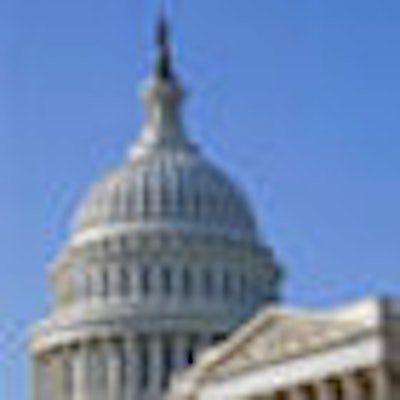
The sweeping healthcare reform bill that the U.S. Congress sent to President Barack Obama for his signature March 21 could affect dentistry for years to come.
— Meg Booth, Children's Dental
Health Project
First and foremost, the bill aims to provide dental care to nearly every single child in the country. If it survives court challenges, it will also provide funding to educate more dental professionals, set up pilot programs for midlevel providers, expand dental care in community health clinics, and fund more research, preventive programs, and public education about oral health.
"The expansion of availability of dental coverage is going to be huge," said Meg Booth, deputy executive director of the Children's Dental Health Project (CDHP). And that's the biggest effect that dental professionals are likely to notice -- more kids showing up at the office, with insurance plans in hand. "In years to come, I would hope the investments in prevention and education will result in less disease and fewer disparities" among patients, she added.
After approving the healthcare reform bill that originated in the Senate, the House of Representatives passed a package of amendments that the Senate is now considering. But aside from one tweak -- exempting dental insurance from a new tax on high-cost healthcare plans -- this so-called "reconciliation bill" doesn't change oral health provisions directly.
And although the Senate could, theoretically, make more changes in the amendments requested by the House, no one thinks they will include oral health provisions. "I think the die is cast," said William Prentice, director of the ADA's Washington, DC, office. "I think we're going to have to return to try to fix this."
Mixed reactions
Dental organizations offered a mixed reaction to the legislation. Booth said her group was still working to get some changes made, particularly in the area of consumer protections for the families who would be covered.
And the ADA wrote to Congress to oppose the bill, plus sent an alert to members asking them to do likewise. The bill doesn't include the expansion of dental Medicaid benefits for which the ADA had fought hard. The organization is also unhappy about new limits the bill would put on flexible spending accounts, and about the legislation's failure to address fee capping by insurance companies or impose reforms of malpractice liability laws.
"Medicaid has been our paramount concern, to put dollars into the program," Prentice said. The ADA wanted increased Medicaid payments for dentists and a mandatory adult Medicaid dental benefit. "There is no dental benefit included in the expansion of Medicaid."
Delta Dental Government Relations Manager Chad Olson gave a "thumbs up" to the expanded coverage of children. But his group, too, is working for modifications. Specifically, Delta Dental would like to make sure that standalone dental plans such as the ones it offers will be able to meet the new requirement that children get dental care.
Delta Dental and other dental insurers want to avoid being relegated to the position of subcontractors who provide benefits through medical plans. The Senate bill does stipulate that the standalone plans can be sold in new state-run healthcare exchanges that the bill creates. "Now we're trying to make sure it's spelled out that we can fulfill the coverage requirement outside the exchanges," Olson said.
Huge changes
However that question is resolved, the bill would transform the world of dental insurance, according to Olson. "It's a game changer," he said.
Leaders of the House Democrats spent last week wrangling votes to pass the bill that passed in the Senate December 24, along with a package of amendments. The process set aside the healthcare bill the House itself passed in November.
Normally, the two chambers would have worked together to merge the two bills, then voted separately on this compromise legislation. But after the passage of the Senate bill, Republicans gained enough votes to use their right to a filibuster, blocking a vote in the Senate.
So the Democrats decided to work around the filibuster through a process known as "reconciliation," which prohibits filibusters for specific types of budget-related legislation. In exchange for passing the Senate bill, the House Democrats asked the Senate Democrats to pass the House amendments through the reconciliation process.
The bill leaves intact the main provisions of the Senate bill, which requires everyone to have health insurance or pay a penalty, sets minimum standards for new insurance plans, and prevents insurers from denying coverage to people with pre-existing conditions. It provides subsidies to people who can't afford insurance on their own.
The 153-page reconciliation bill mentions oral health in only one sentence, where it exempts coverage "for treatment of the mouth (including any organ or structure within the mouth) or for treatment of the eye" from a new tax on high-cost health insurance packages -- the so-called Cadillac tax.
Dentistry affected
But some of the changes that the reconciliation bill makes to the Senate bill would indirectly affect dental professionals:
Businesses with more than 50 employees will have to pay a $2,000 penalty for each worker without health insurance, but the first 30 workers would be exempt from the penalty. The Senate bill imposes a lower fee but doesn't offer these exemptions.
The reconciliation bill lowers payments to insurers through Medicare Advantage. In this program, instead of reimbursing healthcare providers directly, the government hires insurance companies to provide coverage for Medicare beneficiaries. These insurers sometimes provide benefits that are not normally part of Medicare, such as dental insurance. Currently the government pays about 14% more to these companies than it would have paid through conventional Medicare. The reconciliation bill would lower these payments to 95% of Medicare spending in areas where conventional Medicare payments are high and 115% where the payments are low.
The reconciliation bill raises the eligibility for Medicaid to anyone earning less than 133% of the poverty level ($29,327 in annual income for a family of four) and provides federal dollars to cover most of the cost. It also increases Medicaid payments to "primary care physicians" to 100% of Medicare payments, but doesn't include dental professionals.
The Senate bill bans lifetime limits on insurance payouts and prevents insurers from terminating coverage on people who become sick by 2014. The reconciliation bill imposes these bans in six months. The Senate bill includes other consumer protections, including limits on co-payments and other cost sharing. It's not clear yet how consumer protections would apply to dental insurance; Olson believes they do, but Prentice and Booth say they don't.
In the Senate bill, each employer of more than 50 full-time workers has to provide insurance for these employees or pay a fine of $750 for each one who doesn't have insurance or gets a government subsidy for insurance. The reconciliation bill would increase the penalty to $2,000 for each worker, but would exempt the first 30 employees while calculating the penalty. A business with 55 employees, for example, would pay the penalty on 25 workers, or $50,000.
The Senate bill limits to $2,500 the amount that individuals can set aside in flexible spending accounts before paying taxes starting in 2011. The reconciliation bill delays that change until 2013.
Copyright © 2010 DrBicuspid.com



















